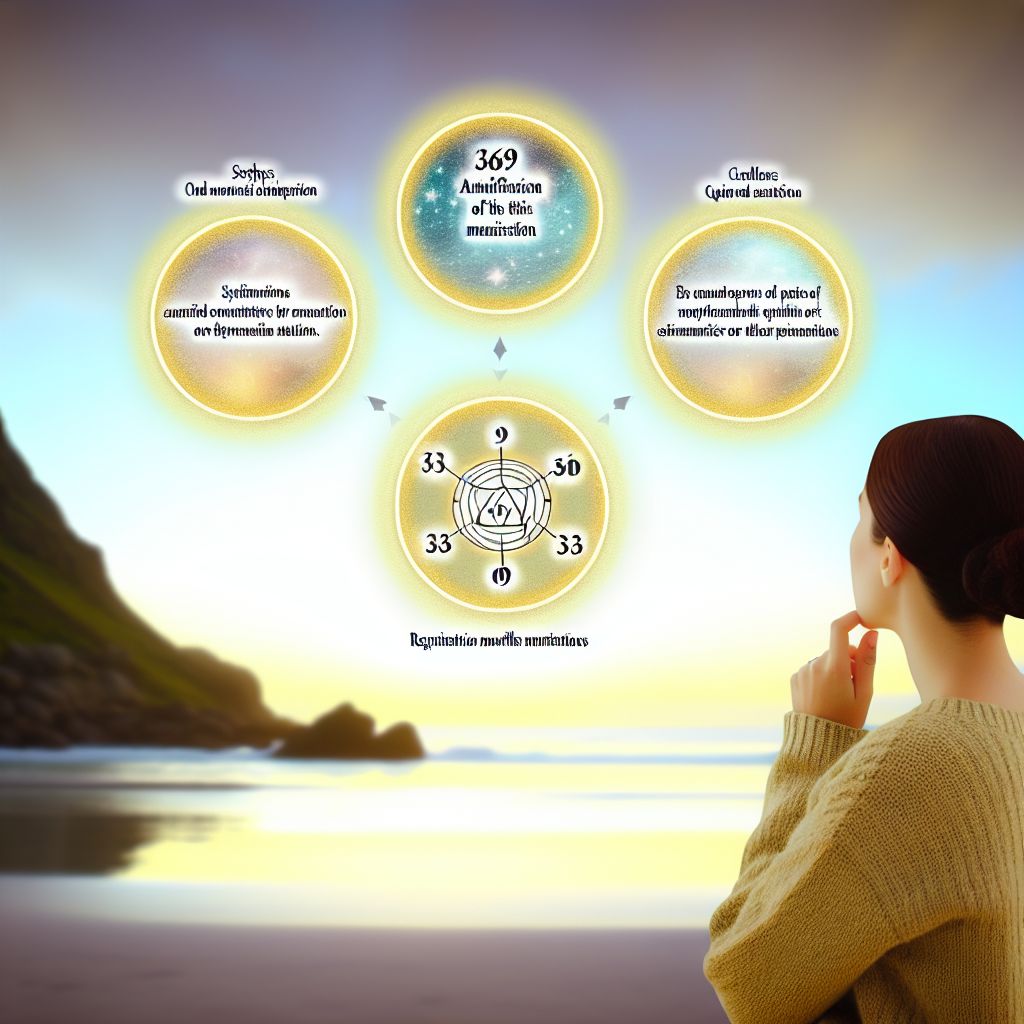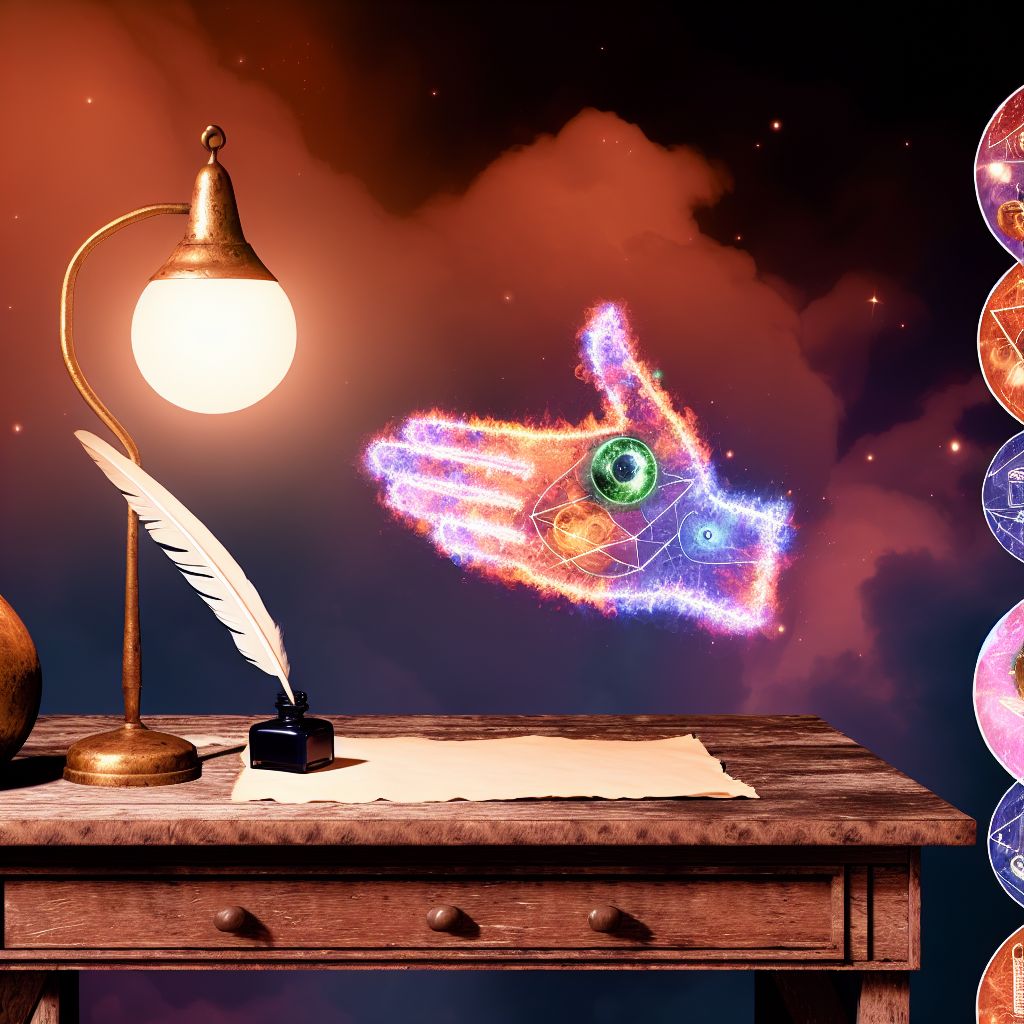Understanding the Range of Relationship Dynamics: From Acts of Kindness to Moments of Conflict
Relationships are the foundation of our lives. They shape our experiences, our emotions, and our overall well-being. From our earliest interactions with our parents to our most intimate partnerships, relationships play a crucial role in our growth and development as individuals.
At the heart of any successful relationship lies kindness. Kindness is the thread that weaves through the fabric of a healthy connection, creating trust, respect, and mutual understanding. It is the act of showing empathy, compassion, and generosity towards one another, fostering a sense of security and belonging.
However, relationships are not always smooth sailing. Conflict is an inevitable part of human interaction, and how we navigate these challenges can make or break a relationship. Conflict can stem from differences in values, expectations, or simply misunderstandings. It can range from minor disagreements to heated arguments, and if left unresolved, can erode the foundation of a once strong bond.
In this article, we will delve into the intricacies of relationship dynamics, exploring the spectrum from kindness to conflict. We will examine the importance of kindness in fostering healthy relationships and delve into the various factors that contribute to conflict. By understanding these dynamics, we can gain insight into how to cultivate and maintain strong, fulfilling relationships that stand the test of time.
Understanding the Complexity of Romantic Interactions

When it comes to romantic relationships, the dynamics can be incredibly intricate and multifaceted. The interplay between two individuals involves a unique blend of emotions, communication styles, and personal histories that shape the course of their interactions.
One of the key aspects of romantic interactions is the presence of both kindness and conflict. Kindness serves as the foundation of a healthy relationship, fostering love, support, and understanding. Acts of kindness can range from small gestures, such as compliments or acts of service, to larger displays of affection and care.
However, conflict is also an inevitable part of any romantic relationship. Disagreements and differences of opinion are natural and can even be healthy when approached constructively. Conflict can arise from various sources, such as miscommunication, unmet expectations, or differing values. How individuals navigate and resolve conflicts can greatly impact the overall health and longevity of the relationship.
Additionally, the complexity of romantic interactions is further influenced by factors such as individual personalities, attachment styles, and external stressors. Each person brings their own unique set of experiences, beliefs, and needs into the relationship, which can sometimes lead to misunderstandings or clashes.
Understanding the complexity of romantic interactions requires open communication, empathy, and a willingness to work through challenges together. It involves recognizing and appreciating the strengths and vulnerabilities of each partner, as well as actively seeking to understand and meet each other's emotional needs.
By acknowledging and embracing the complexity of romantic interactions, individuals can cultivate deeper connections, strengthen their bond, and navigate the ups and downs of a relationship with compassion and resilience.
What are the complexities of love?
Love is a complex and multifaceted emotion that can bring both joy and pain. It is a rollercoaster ride of emotions, with high highs and low lows. One of the complexities of love is that it can be both exhilarating and terrifying at the same time.
Love can be unpredictable and often defies logic. It is not always easy to understand why we feel the way we do or why we are drawn to certain people. Love can make us do things we never thought we were capable of, both good and bad. It can be both uplifting and destructive.
Another complexity of love is that it is ever-changing. Relationships go through different stages, from the passionate honeymoon phase to the more stable and long-lasting companionate love. Love requires constant effort and attention to maintain and grow.
Love can also be influenced by external factors, such as societal expectations and cultural norms. These external pressures can add another layer of complexity to romantic relationships, as individuals navigate their own desires and needs with those of their partner and society.
Furthermore, love can be intertwined with other emotions, such as jealousy, insecurity, and fear. These emotions can arise from past experiences or insecurities and can complicate the dynamics of a relationship. Learning to manage and navigate these emotions is crucial for a healthy and fulfilling love life.
In conclusion, love is a complex and intricate emotion that encompasses a range of experiences and emotions. It can be both beautiful and challenging, requiring effort, understanding, and self-reflection. The complexities of love make it a fascinating and ever-evolving aspect of human life.
Why are romantic relationships complicated?
Romantic relationships are often perceived as complex due to the various factors that contribute to their dynamics. These complexities arise from the unique blend of emotions, expectations, and personal histories that individuals bring into a romantic partnership.
One of the main reasons why romantic relationships can be complicated is the presence of differing needs and desires. Each person in a relationship has their own set of wants and expectations, and navigating these differences can sometimes lead to conflicts and misunderstandings.
Moreover, romantic relationships involve a high level of emotional investment. This emotional vulnerability can make individuals more sensitive to criticism or rejection, further adding to the complexity of the relationship. Issues such as trust, communication, and intimacy can become sources of tension and require careful navigation.
Another factor that contributes to the complexity of romantic relationships is the influence of past experiences and baggage. Each person brings their own history of past relationships, childhood experiences, and personal traumas into their current partnership. These past experiences can shape individuals' behavior and reactions, adding layers of complexity to the relationship dynamics.
Furthermore, societal expectations and cultural norms can also impact the complexity of romantic relationships. Couples may face external pressures to conform to certain relationship ideals or roles, which can create tension and strain. Balancing individual needs with societal expectations can be challenging and contribute to relationship complexities.
| Factors contributing to the complexity of romantic relationships: |
|---|
| Differing needs and desires |
| Emotional vulnerability |
| Past experiences and baggage |
| Societal expectations and cultural norms |
In conclusion, romantic relationships are complicated due to the interplay of various factors such as differing needs, emotional vulnerability, past experiences, and societal expectations. Understanding and navigating these complexities require open communication, empathy, and a willingness to work through challenges together.
What are examples of romantic interaction?
Romantic interaction can take many forms and can vary greatly depending on the individuals involved and their unique relationship dynamics. Some examples of romantic interaction include:
1. Holding hands: This simple act of physical touch can create a strong sense of connection and intimacy between partners.
2. Kissing: A kiss can convey love, passion, and desire. It is a way for couples to express their affection for one another.
3. Romantic gestures: This can include anything from surprise date nights, thoughtful gifts, or planning special outings to show appreciation and love.
4. Physical intimacy: This can range from cuddling and hugging to more intimate acts, such as making love. Physical intimacy is an important aspect of romantic relationships.
5. Verbal expressions of love: Saying 'I love you,' complimenting each other, and expressing admiration are all examples of verbal interactions that contribute to a romantic relationship.
6. Quality time together: Spending uninterrupted time together, engaging in activities that both partners enjoy, and creating shared memories are all important aspects of romantic interaction.
7. Emotional support: Being there for each other during tough times, providing comfort, and offering a listening ear are all ways partners can emotionally support one another.
8. Communication: Open and honest communication is crucial in a romantic relationship. Discussing feelings, thoughts, and desires helps to deepen the connection between partners.
9. Planning for the future: Discussing future goals, dreams, and aspirations together can create a sense of shared vision and strengthen the bond between partners.
10. Acts of kindness: Small acts of kindness, such as cooking a favorite meal, giving a massage, or leaving a sweet note, can go a long way in creating a romantic atmosphere.
Overall, romantic interaction encompasses a wide range of behaviors and actions that contribute to the love, connection, and happiness within a romantic relationship.
Affection and Criticism in Relationships

In any relationship, whether it be romantic, familial, or platonic, affection and criticism play crucial roles in shaping the dynamics between individuals. Affection is the expression of love, care, and positive emotions towards someone, while criticism involves the assessment and evaluation of their actions or behavior.
Affection is vital for creating a strong foundation of trust, intimacy, and emotional connection in relationships. It can be expressed through acts of kindness, words of affirmation, physical touch, or spending quality time together. Affection fosters feelings of security, support, and appreciation, which can strengthen the bond between individuals.
On the other hand, criticism, when used constructively, can contribute to personal growth and improvement within a relationship. Constructive criticism involves providing feedback or suggestions with the intention of helping the other person develop their skills or overcome challenges. It can be a valuable tool for communication and problem-solving, as it allows individuals to address issues and make positive changes.
However, criticism can also be detrimental if it is delivered in a harsh or disrespectful manner. Constant criticism without balance can erode self-esteem, create resentment, and damage the overall relationship. It is essential to approach criticism with empathy, understanding, and the intention of promoting growth rather than attacking the other person.
Both affection and criticism are necessary aspects of relationships, but finding the right balance is key. Too much affection without constructive criticism can lead to complacency and stagnation, while excessive criticism without affection can create a hostile and negative environment.
| Affection | Criticism |
|---|---|
| Expressing love and care | Assessing actions and behavior |
| Building trust and intimacy | Providing feedback for growth |
| Fostering appreciation and support | Promoting positive changes |
| Creating a strong emotional connection | Addressing issues and challenges |
In conclusion, affection and criticism are two sides of the same coin in relationships. They both have the power to shape and influence the dynamics between individuals. Striking a balance between expressing affection and offering constructive criticism is essential for creating healthy and thriving relationships.
What is affection in a relationship?
Affection is a fundamental aspect of any healthy and fulfilling relationship. It is the expression of love, care, and tenderness towards your partner. Affection can be shown through physical touch, such as hugging, holding hands, or kissing, but it can also be expressed through verbal and nonverbal communication.
Affection plays a crucial role in building and maintaining a strong emotional connection between partners. It helps create a sense of security, trust, and intimacy. When you show affection to your partner, you are letting them know that they are loved, valued, and appreciated.
Affection can take many forms and can vary from couple to couple. Some people may prefer more physical displays of affection, while others may find comfort in kind words, gestures, or acts of service. What matters most is that both partners feel loved and cherished in their own unique way.
Affection also extends beyond romantic relationships. It is equally important in familial relationships, friendships, and even professional relationships. Expressing affection towards others can foster a positive and supportive environment, and it can strengthen the bond between individuals.
Overall, affection is a vital ingredient in nurturing and cultivating healthy relationships. It helps create a sense of warmth, closeness, and happiness. So, whether it's a gentle touch, a loving word, or a simple act of kindness, never underestimate the power of affection in building and sustaining meaningful connections.
How does criticism affect a relationship?
Criticism can have a profound impact on a relationship, often leading to negative consequences if not managed effectively. When one partner criticizes the other, it can create feelings of defensiveness, resentment, and hurt. This can create a cycle of negativity and erode the trust and intimacy within the relationship.
Repeated criticism can chip away at a person's self-esteem and sense of self-worth. It can make them feel inadequate, unappreciated, and constantly judged. Over time, this can lead to a loss of confidence and a diminished sense of identity.
Furthermore, constant criticism can erode the emotional connection between partners. It creates an environment of hostility and negativity, making it difficult for love and affection to flourish. The recipient of criticism may start to withdraw emotionally, fearing further judgment and rejection.
It is important to note that criticism is different from constructive feedback. Constructive feedback aims to help the other person grow and improve, while criticism tends to focus on faults and shortcomings. When criticism is delivered with kindness and empathy, it can be received more positively and can lead to growth and learning within the relationship.
However, if criticism becomes the primary mode of communication in a relationship, it can lead to a breakdown in trust and communication. Partners may become defensive and withhold their true thoughts and feelings, leading to unresolved conflicts and emotional distance.
To maintain a healthy and thriving relationship, it is crucial to create an environment of kindness, understanding, and open communication. It is important to address concerns and issues in a constructive and compassionate manner, focusing on finding solutions rather than assigning blame.
By practicing empathy, active listening, and expressing appreciation for each other, couples can foster a positive and supportive dynamic that can withstand challenges and conflicts. It is through kindness and understanding that relationships can grow and thrive.
Deciphering Genuine Compliments from Mere Niceness

Compliments play a crucial role in building and maintaining positive relationships. They have the power to uplift others and make them feel valued and appreciated. However, not all compliments are created equal. Some are genuine expressions of admiration, while others may be mere niceties with no real depth or sincerity behind them. It is important to be able to decipher between the two, as genuine compliments can have a lasting impact on a relationship, while insincere compliments may do more harm than good.
One way to differentiate between genuine compliments and mere niceness is to observe the context in which the compliment is given. Genuine compliments are often specific and tailored to the individual. They acknowledge something unique or special about the person and demonstrate that the complimenter has taken the time to notice and appreciate it. On the other hand, mere niceties are often generic and vague, lacking personalization or thoughtfulness. They are more likely to be automatic responses or empty flattery.
| Genuine Compliments | Mere Niceties |
|---|---|
| Specific and tailored to the individual | Generic and vague |
| Acknowledges something unique or special | Lacks personalization or thoughtfulness |
| Shows genuine admiration and appreciation | May be an automatic response or empty flattery |
Another way to decipher between genuine compliments and mere niceness is to pay attention to the tone and body language of the complimenter. Genuine compliments are often accompanied by a warm and sincere tone, as well as positive and engaged body language. The complimenter may maintain eye contact, smile genuinely, and use a friendly and enthusiastic voice. In contrast, mere niceties may be delivered with a flat or insincere tone, and the complimenter may exhibit disinterested or distracted body language.
In conclusion, deciphering genuine compliments from mere niceness is essential in building and maintaining authentic relationships. By paying attention to the context, content, tone, and body language of compliments, we can ensure that our expressions of admiration and appreciation are sincere and meaningful. Genuine compliments have the power to strengthen bonds and foster trust, while mere niceties may leave others feeling unvalued or manipulated. So, let us strive to give and receive genuine compliments that make a positive difference in our relationships.
How do you know if someone's compliment is genuine?
Receiving a compliment can be a wonderful boost to our self-esteem and make us feel appreciated. However, it's natural to wonder if the compliment is genuine or just empty flattery. Here are a few ways to help determine if someone's compliment is sincere:
1. Body language:Pay attention to the person's body language when they give you a compliment. Genuine compliments are often accompanied by a warm smile, direct eye contact, and open body posture. These non-verbal cues can indicate that the person truly means what they say.
2. Specificity:Genuine compliments are usually specific and detailed. Instead of a generic compliment like 'You're great,' someone who is being sincere is more likely to provide specific examples of what they appreciate about you. They may mention a particular talent, skill, or quality that they admire.
3. Tone of voice:Pay attention to the person's tone of voice. Genuine compliments are often delivered with enthusiasm, sincerity, and a positive tone. If the person's voice lacks energy or sounds insincere, it could be a sign that the compliment is not genuine.
4. Consistency:If someone consistently gives you compliments and shows appreciation for you over time, it is more likely that their compliments are genuine. Genuine compliments are not just one-time occurrences but a consistent pattern of positive feedback.
5. Actions:Genuine compliments are often followed by actions that reinforce the words. If someone compliments you on your work, for example, they may also offer support, guidance, or opportunities to help you further develop your skills. Actions can speak louder than words when it comes to determining the sincerity of a compliment.
Remember, it's important to approach compliments with an open mind and gratitude. Even if you're unsure about the sincerity of a compliment, it's better to accept it graciously and appreciate the positive intention behind it.
What is the power of a genuine compliment?
A genuine compliment has the power to uplift and inspire. It is a simple act that can have a profound impact on both the giver and the receiver. When someone receives a genuine compliment, it can boost their self-esteem and confidence, making them feel valued and appreciated.
Compliments have the ability to strengthen relationships and build trust. When you give someone a genuine compliment, it shows that you are paying attention to them and recognize their efforts or qualities. This can create a positive connection and foster a sense of belonging.
Furthermore, a genuine compliment can have a ripple effect. When you genuinely compliment someone, it can encourage them to pass on the positivity and kindness to others. It can create a chain reaction of goodwill and make the world a better place.
It is important to note that a genuine compliment is different from flattery. Flattery is insincere and often has an ulterior motive. On the other hand, a genuine compliment comes from a place of authenticity and sincerity. It is honest and heartfelt.
So, how can you give a genuine compliment? Start by being observant and paying attention to the people around you. Notice their strengths, achievements, or qualities that you admire. When you give a compliment, be specific and sincere. Instead of saying, 'You're great,' say something like, 'I really appreciate how you always go above and beyond to help others.'
In conclusion, a genuine compliment has the power to make a positive impact and create a ripple effect of kindness. It can boost self-esteem, strengthen relationships, and inspire others. So, make it a habit to give genuine compliments and spread positivity wherever you go.
The Role of Ex-Partners in Current Relationships

Ex-partners can play a significant role in current relationships, whether we like it or not. While it may seem counterintuitive, the impact of past relationships can have a lasting effect on our present ones. Understanding and navigating this influence is crucial for maintaining healthy and fulfilling relationships.
One way in which ex-partners can affect current relationships is through comparison. It is natural for individuals to compare their current partners to their exes, whether consciously or subconsciously. This comparison can create unrealistic expectations or feelings of insecurity. It is important to remember that every relationship is unique, and comparing partners can hinder the growth and development of the current relationship.
Another way ex-partners can influence current relationships is through unresolved emotions. If individuals have not fully processed and healed from a past relationship, those unresolved emotions can resurface and impact their current relationship. It is essential to take the time to address and heal from any lingering emotions to ensure a healthy and thriving relationship.
Additionally, ex-partners can play a role in current relationships through co-parenting. When individuals have children with their exes, they are forced to maintain some level of communication and interaction. This can create tension and strain in the current relationship, especially if there are unresolved issues or conflicts with the ex-partner. It is crucial for individuals to establish clear boundaries and open lines of communication with their exes to minimize any negative impact on their current relationship.
Overall, ex-partners can have a significant influence on current relationships. Whether it is through comparison, unresolved emotions, or co-parenting, it is important to acknowledge and address these dynamics to ensure the health and success of the current relationship. By understanding and navigating the role of ex-partners, individuals can create a solid foundation for their present relationship and cultivate a thriving partnership.
Can an ex ruin a new relationship?
When entering a new relationship, it is natural to have concerns about the impact of past relationships, especially when it comes to an ex-partner. While it is possible for an ex to have some influence on a new relationship, whether they can ruin it entirely depends on various factors.
Firstly, it is important to consider the nature of the previous relationship and the reasons for its end. If the breakup was amicable and both parties have moved on, it is less likely for an ex to have a significant negative impact on a new relationship. However, if the breakup was tumultuous or there are unresolved feelings between the exes, there is a higher chance of interference.
Another factor to consider is the level of trust and communication between the individuals in the new relationship. Open and honest communication can help address any concerns or insecurities that may arise due to an ex's presence. Building trust and maintaining transparency can minimize the potential for an ex to ruin the new relationship.
Additionally, the behavior and actions of the individuals involved play a crucial role. If both partners prioritize their current relationship and set healthy boundaries with their exes, the chances of an ex ruining the new relationship are significantly reduced. However, if one or both partners continue to engage in inappropriate or secretive behavior with their exes, it can create tension and distrust, potentially damaging the new relationship.
Ultimately, whether an ex can ruin a new relationship depends on the individuals involved and their ability to navigate the complexities of past relationships while prioritizing their current one. With open communication, trust, and healthy boundaries, it is possible to overcome any challenges that may arise from an ex's presence and build a strong and fulfilling new relationship.
How much contact with an ex is appropriate?
When a romantic relationship ends, it can be difficult to navigate the appropriate level of contact with an ex-partner. The decision of how much contact is appropriate depends on a variety of factors, including the nature of the breakup, the level of emotional attachment, and the individual needs and boundaries of both parties involved.
For some individuals, maintaining a friendship with an ex can be a healthy and positive choice. This may involve regular communication, such as texting or phone calls, and occasional social interactions. In these cases, it is important for both parties to establish clear boundaries and expectations to ensure that the friendship does not hinder their emotional well-being or interfere with future relationships.
However, for others, maintaining contact with an ex can be emotionally challenging or even detrimental. In these cases, it may be necessary to limit or cut off contact entirely. This can help individuals to heal and move on from the relationship, allowing them to focus on their own personal growth and well-being.
It is important to assess the motivations behind wanting to maintain contact with an ex. If the desire for contact is rooted in unresolved feelings or a hope for reconciliation, it may be healthier to take a break from contact until these emotions have been processed and resolved.
An open and honest conversation with an ex about contact boundaries can be beneficial in establishing a mutually agreed-upon level of contact. This can help to ensure that both parties feel comfortable and respected in their post-relationship dynamic.
| Factors to consider when determining appropriate contact with an ex: |
|---|
| 1. Emotional well-being |
| 2. Level of attachment |
| 3. Individual needs and boundaries |
| 4. Motivations for maintaining contact |
In conclusion, there is no one-size-fits-all answer to how much contact with an ex is appropriate. It is important to consider individual circumstances and prioritize emotional well-being when making decisions about post-relationship contact. Communication and mutual understanding are key in establishing healthy boundaries and maintaining a positive post-relationship dynamic.
Should exes stay in contact?
When a romantic relationship comes to an end, the question of whether or not exes should stay in contact often arises. This topic can be highly debated and subjective, as there are various factors to consider.
1. Emotional well-being:For some individuals, maintaining contact with an ex can hinder the healing process and prolong emotional distress. It may be necessary for them to create distance in order to move on and find closure. On the other hand, some people find comfort in maintaining a friendship with their ex, as it provides a sense of familiarity and support.
2. Mutual respect and boundaries:The ability to maintain a healthy level of respect and establish clear boundaries is crucial when considering staying in contact with an ex. Both parties must be willing to communicate openly and honestly about their expectations and needs. This can help prevent misunderstandings and potential conflicts.
3. Impact on future relationships:Staying in contact with an ex can sometimes pose challenges in future relationships. Jealousy or insecurity may arise if a new partner feels threatened by the continued connection between their significant other and their ex. It is essential to consider how the decision to stay in contact may affect future relationships and be prepared to address any concerns that may arise.
4. Individual circumstances:Each situation is unique, and what works for one couple may not work for another. Factors such as the length and intensity of the relationship, the reasons for the breakup, and the overall dynamic between the individuals involved should be taken into consideration.
Conclusion:Ultimately, the decision of whether or not exes should stay in contact is a personal one. It is important for individuals to reflect on their own emotional well-being, communicate openly with their ex, and consider the potential impact on future relationships. By taking these factors into account, individuals can make an informed decision that is best for their own unique circumstances.











